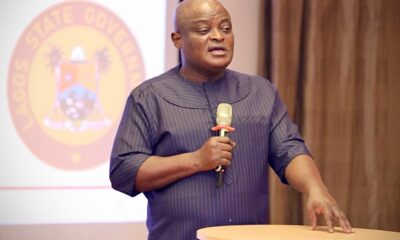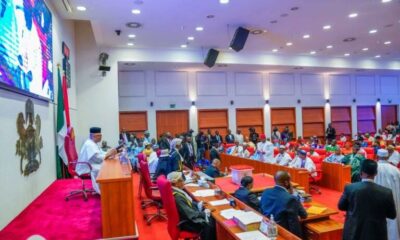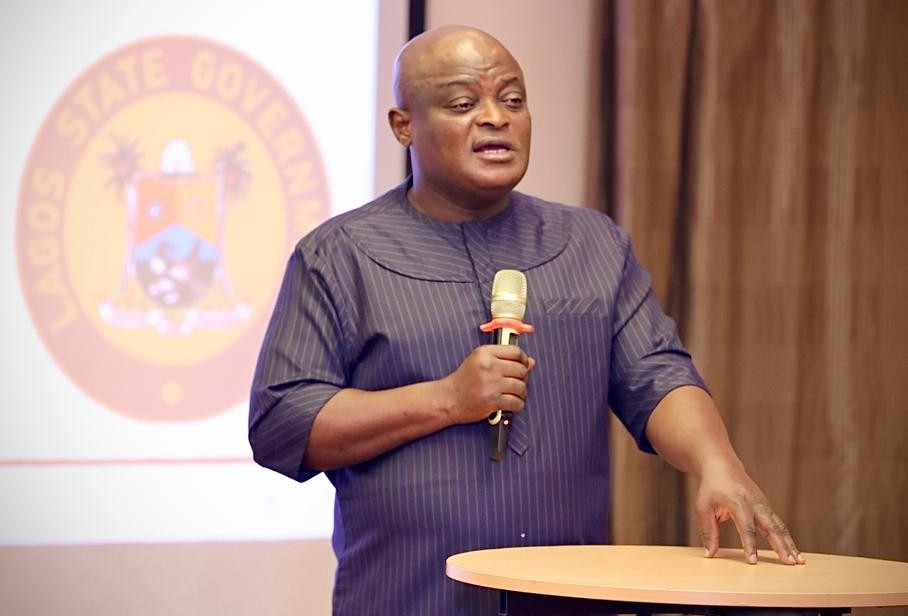Former President Olusegun Obasanjo has stated that individuals profiting from fuel importation may attempt to hinder the progress of the Dangote Petroleum Refinery.
His comments come after Alhaji Aliko Dangote, President of the Dangote Group, alleged that certain ‘mafias’ were trying to frustrate the $20 billion refinery project.
Meanwhile, it has been reported that the Dangote refinery and other domestic refineries have yet to purchase crude oil in naira, despite President Bola Tinubu’s directive to the Nigerian National Petroleum Company Limited.
In an interview with the Financial Times, Obasanjo praised the Dangote refinery as a project that should be welcomed by both Nigerians and foreigners, highlighting its potential benefits.
“Aliko’s investment in a refinery, if it goes well, should encourage both Nigerians and non-Nigerians to invest in Nigeria.
“If those who are selling or supplying refined products for Nigeria feel that they will lose the lucrative opportunity, they will also make every effort to get him frustrated,” Obasanjo stated.
Officials of the Dangote Group recently cried out that international oil companies were frustrating the refinery by refusing to sell crude or by selling to them at a premium up to $4 above the normal price.
They also accused the Nigerian Midstream and Downstream Regulatory Authority of deliberately granting licences to individuals to import dirty fuel.
The regulator denied this, saying Dangote diesel was inferior when compared to the imported ones.
The NMDPRA Chief Executive, Farouk Ahmed, also stated that the country would not stop fuel importation to avoid a monopoly by the Dangote Group.
Obasanjo, speaking further, disclosed that Nigeria made a deadly mistake by putting all its eggs in what he called one basket of oil, ignoring gas and agriculture.
“I believe we made a very, very deadly mistake. We put all our eggs in one basket of oil. We even ignored gas. We were flaring gas, which is a very important commodity
“We ignored agriculture, which should have been the centrepiece of our economic development,” Obasanjo stated.
He recalled how he persuaded Shell to run the country’s refineries but the International Oil Company refused, saying there was too much corruption in the sector.
“When I was President, I invited Shell and I said, look, come and take equity participation and run our refineries for us. They refused. They said our refineries have not been well maintained.
“We have brought amateurs rather than bringing professionals. They said there’s too much corruption with the way our refinery is run and maintained. And they didn’t want to get involved in such a mess,” he explained.
On the promises that the refineries will be fixed, he asked, “How many times have they told us that? And at what price?
“Those problems, as far as the government refineries are concerned, have never gone away. They have even increased. So if you have a problem like that and that problem is not removed then you aren’t going anywhere.”
The former President also condemned the style adopted by President Bola Tinubu to remove fuel subsidies, stating that the present administration should have first considered the hardship the subsidy removal could cause people and how to ameliorate the same.
“There’s a lot of work that needs to be done. Not just wake up one morning and say you removed the subsidy. Because of inflation, the subsidy that we have removed is not gone. It has come back,” the former President stressed.
He said there must be investor confidence in Nigeria, adding, “You have to go from transactional economy to transformational economy.”
Obasanjo expressed concern over youths’ restiveness caused by unemployment, fearing that Nigeria might be sitting on a keg of gunpowder.
“Our youth are restive. And they are restive because they have no skill. They have no empowerment. They have no employment. We are all sitting on a keg of gunpowder. And my prayer is that we will do the right thing before it’s too late,” he warned.
It was also gathered on Monday that the Dangote refinery and other local refineries in Nigeria had yet to start buying crude oil from NNPC in naira as directed by President Tinubu.
The Crude Oil Refiners Association of Nigeria said letters have been written to NNPC by individual refiners requesting crude, but there has been no response yet.
The Federal Executive Council recently adopted a proposal by Tinubu to sell crude to the Dangote refinery and other upcoming refineries in naira.
FEC approved that the 450,000 barrels meant for domestic consumption be offered in naira to Nigerian refineries, using the Dangote refinery as a pilot. The exchange rate will be fixed for the duration of this transaction.
However, almost one week after the announcement, the refiners said they had not heard from the NNPC.
The Publicity Secretary of the Crude Oil Refiners Association of Nigeria, Eche Idoko, said the Nigerian Midstream and Downstream Petroleum Authority is expected to kickstart the process.
“We have not started buying crude from NNPC. Individual members have written to them (NNPC) already, and they have several requests from these refineries before them.
“Typically, we would expect our regulator, in this instance, the NMDPRA, to kick start the process by calling for a meeting of all parties to discuss the framework for such supply or have NNPC respond to the various letters to it by the refineries requesting for crude,” Idoko noted.
The CORAN spokesperson had earlier stated that the supply of crude oil to local refineries in naira would bring down the cost of petrol and strengthen the naira against the dollar.
Idoko commended Tinubu for listening to the voice of indigenous refiners but noted that an executive order should be issued on the new directive.
The crude oil refiners also sought a meeting with the economic team to work out a rate that would favour the Nigerian market.
“Yes, we will see a rebound in the pricing of fuel once the President’s order is implemented. Mind you, the pronouncement alone is not enough. It must be with a force of law, either by executive order or by incorporating it into a new guideline so that the crude producers will be bound to sell to us in naira,” Idoko stated.
Dangote refinery and other domestic refiners have been complaining about the difficulties associated with accessing crude oil for their plants. Recently, the management of Dangote Group insisted that the IOCs were still frustrating crude supply to the 650,000-capacity refinery.
In a statement, the group alleged that the IOCs insisted on selling crude oil to its refinery through their foreign agents, saying the local price of crude will continue to increase because the trading arms offer cargoes at $2 to $4 per barrel, above NUPRC official price.
The group also alleged that the foreign oil producers seem to be prioritising Asian countries in selling the crude they produce in Nigeria.
A senior official at the Dangote refinery, who pleaded not to be named due to lack of authorisation to speak on the matter, confirmed that the plant had yet to start buying crude in naira from NNPC.
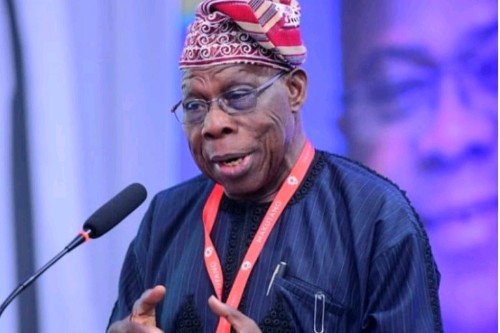

 BIG STORY3 days ago
BIG STORY3 days ago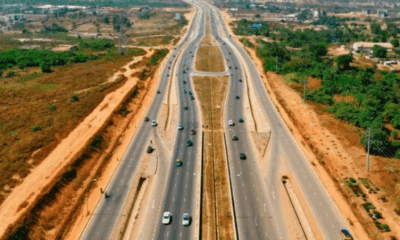
 BIG STORY4 days ago
BIG STORY4 days ago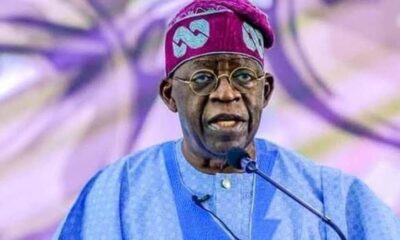
 BIG STORY2 days ago
BIG STORY2 days ago
 BIG STORY3 days ago
BIG STORY3 days ago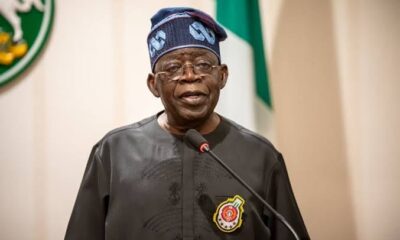
 BIG STORY1 day ago
BIG STORY1 day ago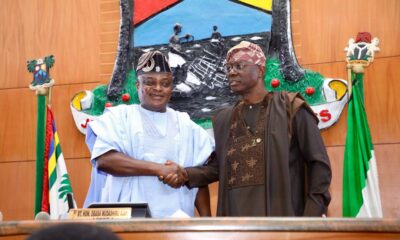
 BIG STORY2 days ago
BIG STORY2 days ago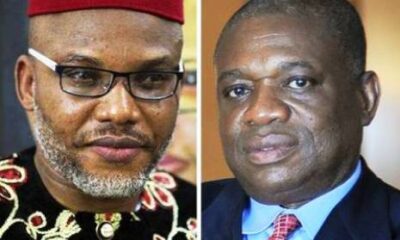
 BIG STORY4 days ago
BIG STORY4 days ago
 BIG STORY4 days ago
BIG STORY4 days ago






